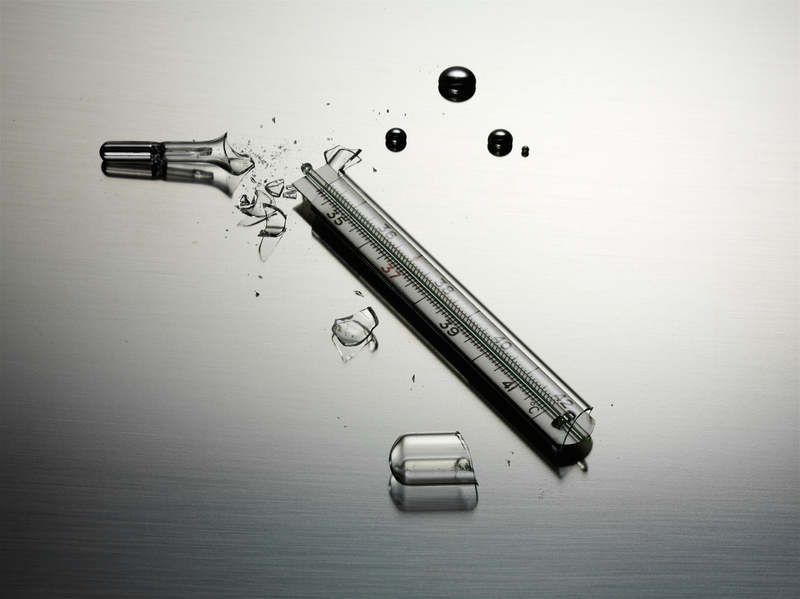What to Do With Your Old Masks and Gloves After Use: Comprehensive Guide
During and after the height of the pandemic, the question of what to do with your old masks and gloves after use has become increasingly important. With millions of people relying on personal protective equipment (PPE) daily, it is essential to understand the correct way to dispose of, recycle, or even repurpose them. This not only ensures our personal and public health but also helps protect the environment from the growing waste issue.
Why Proper Disposal of Old Masks and Gloves Matters
Improper disposal of used masks and gloves can have serious consequences:
- Public health risk: Discarded PPE may carry infectious residues.
- Environmental impact: Masks and gloves are mostly made from plastics that take years to decompose.
- Wildlife danger: Animals can mistake these items for food or get entangled in them.
By knowing how to dispose of old masks and gloves responsibly, you help minimize these risks while contributing to collective well-being.

Types of Masks and Gloves Commonly Used
Popular Mask Types
- Surgical masks - Disposable, 3-layered, medical-grade masks
- N95 and KN95 respirators - Provide higher filtration efficiency
- Cloth masks - Reusable and washable, made from fabric
Main Glove Types
- Nitrile gloves - Synthetic, commonly blue or purple, known for chemical resistance
- Latex gloves - Natural rubber, very flexible but can cause allergy
- Vinyl gloves - Often used in non-medical settings, affordable and latex-free
Each *type of mask and glove* requires different consideration when it comes to disposal or reuse. Understanding their materials is crucial for deciding the best post-use action.
General Guidelines for Disposing of Used Masks and Gloves
Disposal of Single-Use Masks and Gloves
Most medical and disposable masks and gloves are made from polypropylene or similar plastics. These should never be recycled at home through your usual recycling bin unless your local municipality specifically allows it.
- Place used single-use masks and gloves in a plastic-lined garbage bin.
- Do not throw them on the ground or flush them down the toilet.
- If visibly soiled or used in a clinical setting, double-bag the items before disposal.
- Always wash your hands for at least 20 seconds after handling used PPE.
Following these disposal tips for old masks and gloves is the most responsible approach to prevent any cross-contamination and keep public spaces clean.
Safe Disposal at Home
When disposing of old masks and gloves at home:
- Keep a separate bin or lined trash bag labeled "PPE Waste" if you use such items frequently.
- Seal the bag when full and remove it immediately to your outdoor garbage bin.
- Make sure children and pets cannot access discarded PPE.
PPE Disposal at Work
Workplaces, especially those in the healthcare sector, should provide designated PPE disposal bins. These containers are commonly color-coded and clearly labeled. Encourage your employer to have policies in place and provide proper training on how to handle used masks and gloves.
What About Reusable Cloth Masks?
Proper Cleaning and Maintenance
Cloth masks can often be reused many times if cleaned properly. To ensure safety:
- Wash your mask daily using hot water and detergent.
- Dry masks on the highest heat setting or under direct sunlight.
- Inspect regularly for wear and tear--replace if any holes or damage appear.
When to Dispose of Reusable Masks
If your cloth mask is no longer usable:
- Cut off the elastic bands to prevent wildlife entanglement.
- Dispose of it in the same way as other textiles--check local guidelines for textile recycling, or throw it in the trash if recycling isn't possible.
Recycling Options for Old Masks and Gloves
Unfortunately, most municipal recycling programs do not accept PPE, including disposable masks and gloves. However, there are innovative programs emerging to address this challenge:
Manufacturer-Driven Recycling Programs
- TerraCycle: Specializes in recycling difficult items, including PPE kits for masks, gloves, and other equipment. These kits allow you to send used PPE for professional recycling.
- Mask recycling drives: Some communities and healthcare centers partner with waste management companies for periodic collection drives focused on PPE.
Before participating in any program, verify the safety measures and eligibility to ensure proper handling of potentially contaminated PPE.
Creative Upcycling and Repurposing Ideas
While it's not recommended to reuse old masks and gloves for protective purposes, here are ways to safely repurpose clean, unused, or decontaminated PPE:
- Create non-medical craft projects--such as stuffing for pillows (with clean, fabric masks) or using gloves in art projects.
- Use masks as padding material in shipping boxes.
- Transform cloth masks into cleaning rags or dusters.
To avoid health risks, do not repurpose items that have been used in contaminated or healthcare settings.
How to Reduce PPE Waste
The best way to minimize the burden on our landfills and environment is to reduce the amount of disposable PPE you use:
- Choose reusable masks whenever possible.
- Opt for gloves only when absolutely necessary--follow proper handwashing as a primary means of protection.
- Educate friends and family about responsible disposal practices.
If you work in a setting that requires large volumes of PPE, advocate for sourcing more sustainable options, such as biodegradable masks and gloves.
New Innovations in Biodegradable PPE
- Biodegradable masks and gloves made from plant-based materials are emerging as eco-friendly options.
- Some companies now offer compostable masks suitable for landfill diversion and composting facilities.
- Check labels and certifications to ensure these options are genuinely compostable and not merely "biodegradable in industrial conditions."
Switching to sustainable PPE alternatives whenever possible can significantly reduce your environmental footprint.
Health and Safety Considerations When Handling Old PPE
Improper handling of discarded masks and gloves could lead to accidental exposure to infectious agents:
- Never touch the front of your used mask or the outer surface of gloves.
- Remove PPE carefully, only touching the ties or inner surface.
- After disposal, immediately wash your hands or use a hand sanitizer containing at least 60% alcohol.
- If in doubt, err on the side of caution: double-bag visibly contaminated PPE and dispose of it in accordance with public health advice.
What Should You NOT Do With Old Masks and Gloves?
- Don't toss them on the street: Littered PPE is hazardous to both humans and wildlife.
- Don't flush down toilets: Masks and gloves can clog sewage systems and contribute to marine pollution.
- Don't try to recycle them at home with regular plastics--most sorting facilities are not equipped for PPE materials.
- Don't burn PPE waste at home: Burning produces toxic fumes dangerous for your health and the environment.
The Role of Community Initiatives
Community action amplifies the impact of individual efforts. Some cities and municipalities now offer:
- PPE collection bins in public places like malls, stations, and parks
- Awareness campaigns promoting proper disposal and eco-friendly options
- School programs to educate children on the importance of responsible waste management
If your community does not already have these resources, consider reaching out to local authorities to initiate such programs.

Summary: Best Practices for Handling Old Masks and Gloves After Use
- Place single-use masks and gloves in a plastic-lined trash bin--never in recycling.
- Use double-bagging for visibly contaminated PPE.
- Wash and reuse cloth masks when possible; discard when damaged.
- Check for specialized PPE recycling programs in your area.
- Reduce PPE waste by opting for reusable or biodegradable options.
- Wash hands immediately after handling or disposing of old PPE.
Quick Reference Checklist for PPE Waste Management
- DO seal used PPE in a bag before putting it in the trash.
- DO cut straps of masks and gloves before disposal to prevent wildlife entanglement.
- DO educate others about the importance of proper PPE disposal.
- DON'T litter, recycle incorrectly, or flush old masks and gloves.
Final Thoughts: Caring for Health and the Environment
Learning what to do with your old masks and gloves after use is crucial as we continue to deal with personal safety in a post-pandemic world. By following the best practices in this guide, you not only protect yourself and others from unnecessary exposure but also help the planet by reducing unnecessary waste and potential harm to wildlife.
Whether you're at home, at work, or out in the community, your actions matter. Every properly disposed mask or glove prevents contamination and keeps our world cleaner and safer. Stay informed, make eco-friendly choices, and spread the word on safe PPE management!
Frequently Asked Questions
- Can I recycle old masks and gloves in my blue bin?
No, these items are not accepted in curbside recycling programs due to contamination and material concerns. - Are there eco-friendly alternatives to disposable masks and gloves?
Yes, look for certified compostable or reusable options whenever possible. - Where can I find PPE-specific recycling programs?
Check with TerraCycle or your local government for special collection points or kits.
For more information on managing PPE waste and finding recycling solutions in your area, consult your local waste management authority or visit the official EPA website.